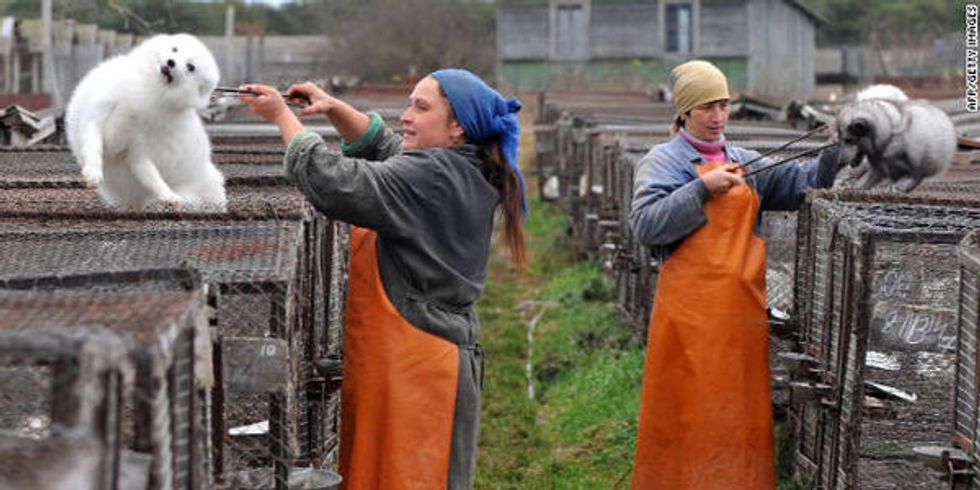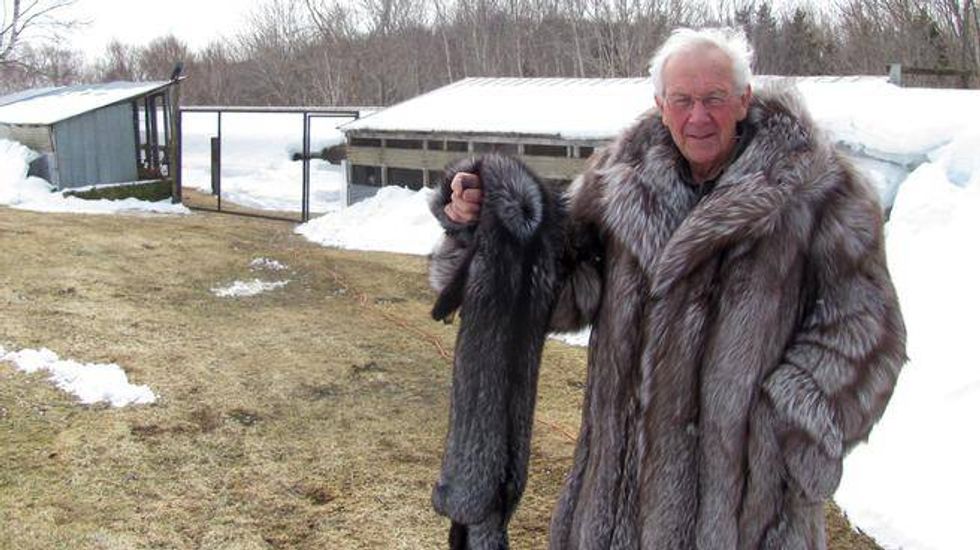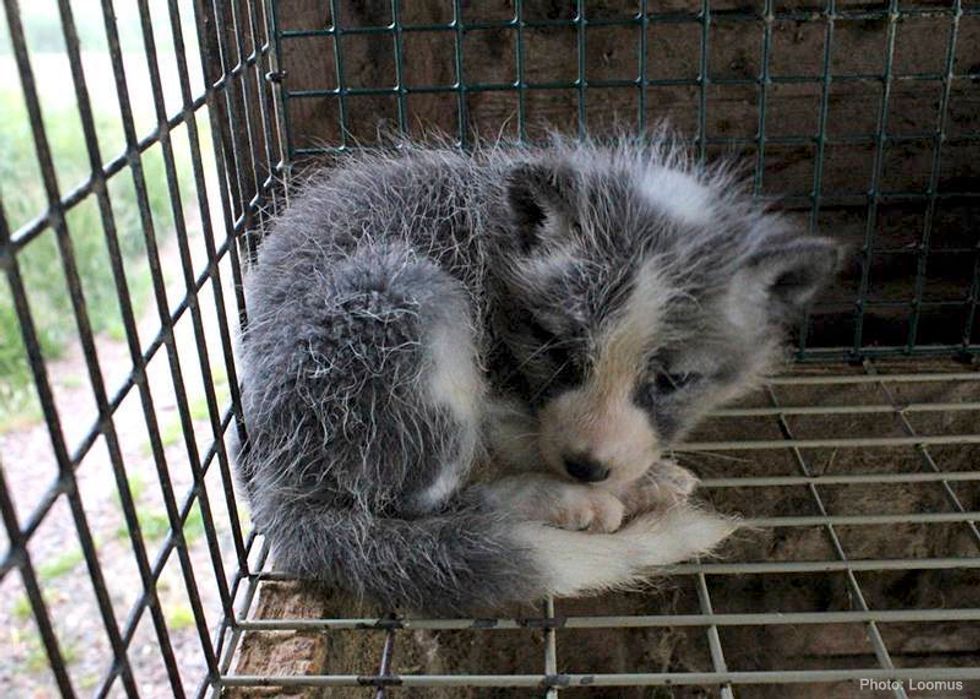Did you know that Fur Farming is still legal in the United States? Recently I have entered into this conversation with multiple people who seem to believe that fur farms are something that are primarily found outside of the U.S. and particularly in China.
While it is true that China is the most publicized in this issue, because they are infamous for farming the furs of dogs and cats, they are certainly not the only country where fur farming is still legal.
While the United States does not allow the farming of dogs and cats for their fur, there are currently no laws which ban the farming of mink and foxes.
The USDA reported that in the United States in 2016 (the most recent study available) mink pelt production totaled 3.32 million pelts and on top of that number 741,000 female mink were kept to breed and produce kits.
Although I searched the USDA site thoroughly I was unable to find the numbers for fox pelts and female breeders for any year in the United States, which is something I found extremely odd.
In contrast to the United State's choice to keep fur farming alive and well, according to the Fur Free Alliance's website, the United Kingdom, Austria, the Netherlands, Croatia, Slovenia, Bosnia, Herzegovina, Serbia, the Republic of Macedonia, Japan, and the Czech Republic have all banned fur farming. The United Kingdom was the first country to ban fur farming in the year 2000, and the most recent country to ban it was Japan in 2016.
While the fact that the United States still supports fur farming may have surprised you, you may be more surprised to find that the U.S. has no federal law to regulate the treatment of the animals within fur farms and state laws fluctuate in their specifications.Michigan State University's Animal Legal and Historical Center says the following about the current laws and regulations concerning fur farms in the U.S.:
"There are few laws concerning fur farming, besides some states requiring a license to operate a fur farm. Some states designate animals raised on fur farms to be regulated by the Department of Agriculture, similar to other farm animals.
There are some anti-cruelty statutes that purport to apply to all animals, but many contain exceptions for hunting wildlife and animals used for farming purposes. Finally, some states have labeling laws and prohibit the dog and cat fur trade, similar to the federal law.
For example according to Michigan State Univeristy's Animal Legal and Historical Center, "Alabama’s anti-cruelty law applies to the cruel mistreatment of any animal. However, most other anti-cruelty laws exempt animals hunted or raised on fur farms." For a more detailed list of federal and state laws and prohibitions concerning fur farms please visit the following link:
More Information From Michigan State University
Fur farms in the U.S. typically keep hundreds of foxes and/or mink (depending on the farm) in small stackable cages, where they are routinely electrocuted in order to "improve" the fur quality. After enduring a life of routine torture and confinement they are then either put to death, typically by being put into gas chambers in large groups, or chosen to be kept for breeding.
From this, I would like to point out that while many of these animals enter fur farms through trapping (another controversial issue involved in fur farming) many are born and live their entire lives in this environment. I realize that that is an unhappy paragraph to read, but there is no softening the truth of this issue.
While some people may not agree that killing these animals for the primary purpose of using their fur is morally wrong, I would like to believe that the fact that there are so few concrete regulations on the treatment of these animals before their death is something everyone can agree is wrong.
It is easy to look at China and see their actions towards the fur farming of cats and dogs as cruel and inhumane. When looking at our own country's actions concerning fur farms, however, there seems to be both a lack of awareness and empathy. The most important thing in an issue like this is public awareness.
So, if any of these issues which I have presented are something that you believe to be wrong, act. We, as humans, are no longer in a position to claim these actions as part of a "need for survival" so we must concede that it is done purely for enjoyment, or frivolity (typically in the pursuit of fashion.) This cannot possibly be a good enough reason to torture and kill a living creature.
The solution to this problem, that has manifested in so many other countries, is public policy revisions. We need more regulations concerning fur farming in the U.S. at the very least, and at best a ban on all fur farming. Laws change when public opinion forces those in charge to act, so make your voice heard and help bring the U.S. up to date by further regulating and/or abolishing fur farms.
Things that you can do to help:
1. Check all labels of clothes which have fur, as U.S. law forces all labels to include whether or not an item contains real fur.
2. Speak to peers about this issue, awareness is everything.
3. Support companies and designers which have chosen to ban fur in their own markets.
4. Donate to causes which are working to stop fur farming in the U.S. such as:
























